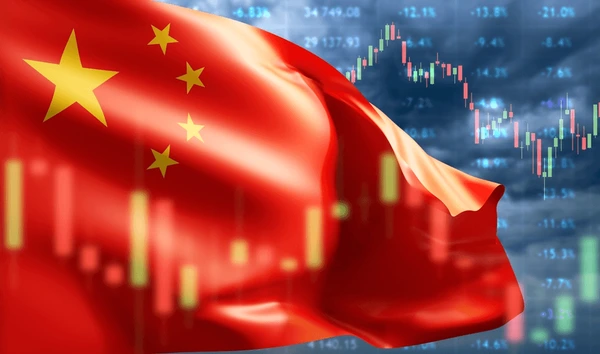
Tuesday witnessed a decline in Asian shares, primarily influenced by the court-ordered liquidation of China’s property giant, Evergrande Group. This development, coupled with escalating geopolitical tensions, bolstered oil prices while simultaneously dampening risk appetite. This cautious sentiment prevails as the market anticipates the upcoming Federal Reserve meeting.
In the Asian trading hours, US Treasury yields remained subdued, which in turn restrained dollar movements. This follows the US Treasury Department’s announcement of a reduced borrowing requirement compared to its previous estimates.
The MSCI’s broadest index of Asia-Pacific shares outside Japan dropped by 0.32%, marking a decrease of over 3% in January and potentially ending a two-month streak of gains. Conversely, Japan’s Nikkei index rose by 0.42%, aiming for an 8% increase this month.
The unfolding situation with Evergrande Group’s court-mandated liquidation and its potential ripple effects on China’s already fragile property market are significant concerns for investors.
Despite a lift in Hong Kong’s Hang Seng index on Monday, driven by energy stocks, the index fell by 1.4% on Tuesday, heading towards a 7% decline for January. The Hang Seng mainland properties index saw a 3% drop. Similarly, China’s stocks declined by 0.69%, heading towards a nearly 4% fall for the month.
Vasu Menon, managing director of investment strategy at OCBC Bank in Singapore, emphasized the reminder this situation brings about the risks in China’s real estate sector and the hurdles it faces on the path to recovery.
Meanwhile, Wall Street experienced gains overnight, with the S&P 500 reaching another record high close. Market participants are looking forward to this week’s major earnings reports from tech giants like Microsoft and Alphabet, scheduled for later Tuesday.
The Federal Reserve’s policy meeting and Chair Jerome Powell’s subsequent commentary are anticipated to be the focal points of the week. However, investors are also keenly awaiting European inflation data, the Bank of England policy meetings, and the US employment report to discern market trends in the coming months.
Gary Dugan, CIO at Dalma Capital, predicts that the Federal Reserve will convey a message of patience regarding interest rate reductions, despite possibly having reached the peak. He further notes that a resurgence in economic growth could tighten the labor market, potentially driving wages up.
The Fed’s dovish stance in December, projecting 75 basis points of interest rate cuts in 2024, ignited a year-end risk rally. Traders had initially priced in easing as early as March. However, recent strong economic data, persistent inflation, and central banker pushbacks have led to a recalibration of these expectations.
Market forecasts, as per the CME FedWatch tool, show a 47% chance of a Fed rate cut in March, down from 88% a month earlier. The anticipated total cuts for the year have been adjusted to 134 basis points, compared to 160 basis points a month ago.
In currency markets, the dollar index remained stable at 103.43. The yield on 10-year Treasury notes dropped slightly to 4.078% in early Asian trading. The euro edged away from a near seven-week low, standing at US$1.0833, as traders recalibrate expectations for the European Central Bank’s rate cuts.
Geopolitical developments in the Middle East are also influencing market sentiment. The US pledged to defend its forces following a drone attack in Jordan that killed three US troops. Additionally, Qatar expressed hopes that US actions would not undermine regional security or the progress towards a new Gaza hostage-release deal.
In the commodities market, US crude oil prices rose by 0.53% to US$77.19 per barrel, while Brent crude increased by 0.49%, reaching US$82.80 per barrel.
The global financial landscape is navigating a complex interplay of corporate earnings, monetary policy expectations, geopolitical tensions, and market dynamics. As these factors continue to evolve, they will significantly shape investor strategies and market trajectories in the coming months.
Featured image credit: FOTOGRIN via Shutterstock
